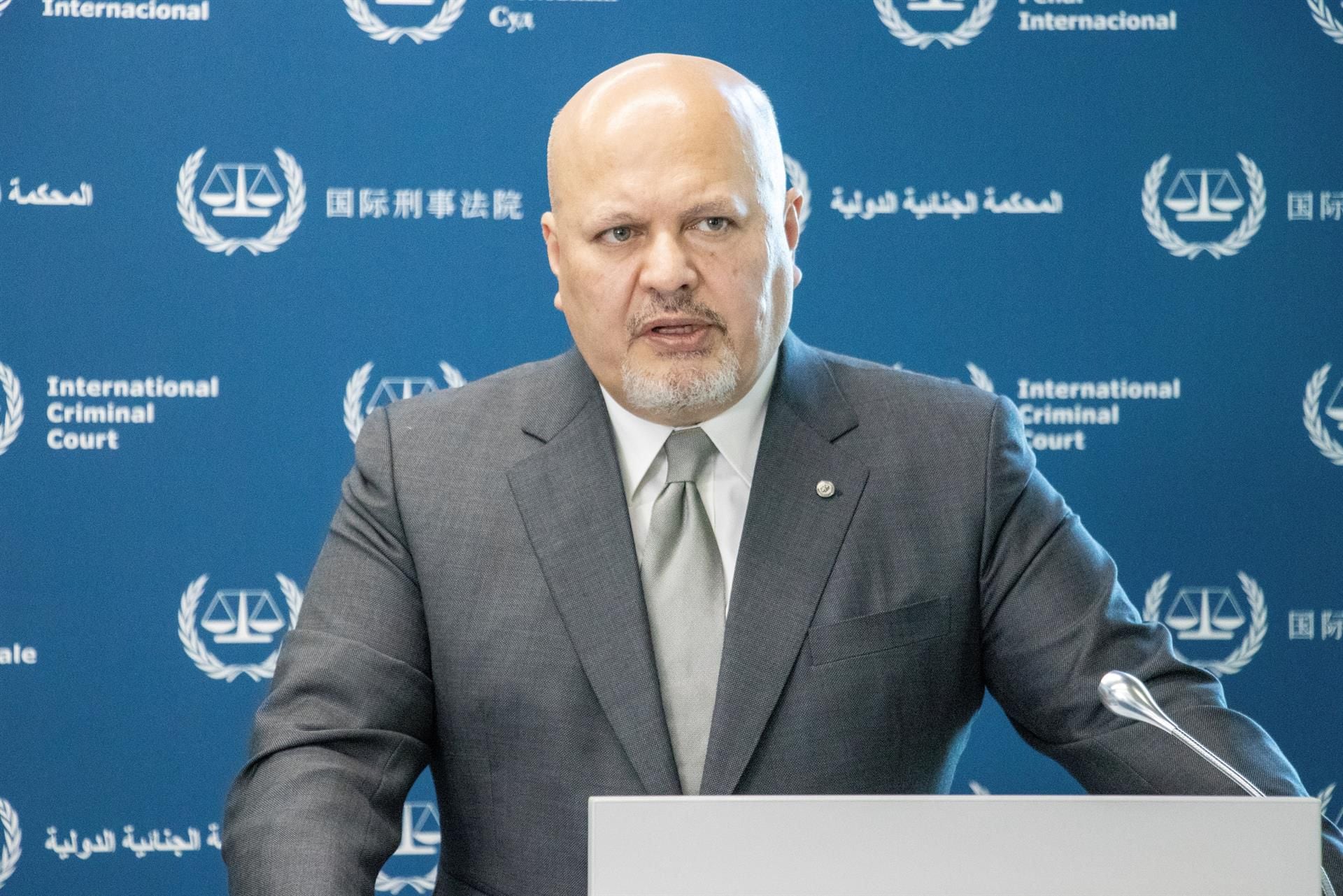
The International Criminal Court (ICC) has its hands tied in the face of Russia’s “crime of aggression” against Ukraine because neither of the two countries is a member state. But this court could try pro-Russian Ukrainians who participate in the invasion for war crimes and crimes against humanity.
ICC prosecutor Karim Khan underscored his lack of jurisdiction over the crime of aggression in this conflict, warning “all parties carrying out hostilities” that they can be prosecuted if they commit any other international crime, and this it is due to Kiev’s complicated formal relationship with the Rome Statute, the founding of the ICC.
The ICC has had jurisdiction since 2002 over “war crimes”, “against humanity” and “genocide”, but also over the “crime of aggression” (such as military invasion and occupation), although this was only activated in 2018 and under stricter conditions than the other three: it does not apply to acts of aggression committed in countries that have not ratified the Statute such as Russia and Ukraine.
Only if Kiev now ratifies the constitutive statute in that 2018 amended version, could the ICC try pro-Russian Ukrainians suspected of aggression. For the aggressors of Russian nationality, Moscow would also have to ratify the Statute, which is not currently on its agenda.
For this reason, experts are pressing Ukraine to resolve its relationship with the ICC.
From Parliamentarians for Global Action (PGA), Frederika Schweighoferova explained that “the conditions of the jurisdiction over the crime of aggression leave no hope that Russia can be prosecuted under the ICC for this crime” and pointed out that “it unfortunately requires that both States are parties” to the Statute.
“Even if Ukraine ratifies the Rome Statute in the amended version that includes this crime of aggression, Russia would never do so,” he adds.
Russia signed the statute in 2000 but never ratified it, withdrawing its signature in 2016, a day after the ICC published a report that regarded Russia’s annexation of Crimea as an “occupation” in a symbolic gesture. .
Nor is it feasible for the UN Security Council to refer the situation to the ICC: Moscow has the right to veto and it is likely that it will use it to avoid a trial of its officers. “This leaves an aggression committed by Russia completely outside the jurisdiction of the ICC,” he analyzes.
other crimes
The ICC is a court of last resort, so Kiev can resort to its own laws.
The Ukrainian criminal code already criminalizes the crime of aggression regardless of the nationality of the perpetrators, but this “means in practice that it must be able to detain Russian perpetrators in Ukraine itself or in another state that extradite them, and that it is unlikely,” says Schweighoferova, since the leader, and not a simple soldier, is held responsible for this crime.
Before the activation of the crime of aggression in the ICC, Kiev made two declarations in 2014 and 2015 -which do not make it a member- in which it partially accepted the jurisdiction of the ICC to “identify and try the perpetrators and their accomplices of acts committed on the territory of Ukraine since February 20, 2014″.
The ICC prosecution concluded that preliminary examination in December 2020, but has not yet asked the judges to open a formal investigation.
The Court would thus have de facto jurisdiction over war crimes and crimes against humanity now occurring on Ukrainian territory, including Crimea and Donbas, beyond the immunities of the alleged perpetrators.
But organizations such as the PGA and the Center for Civil Liberties (CCL) ask President Volodímir Zelenski to send the ratification file to the Ukrainian Parliament and sign the corresponding law, so that Kiev can commit definitively, they underline, with “the prevention and prosecution of the most serious international crimes.
Ukraine committed to ratifying the Statute after signing the Association Agreement with the European Union (EU) in 2014 and has already amended its latest Constitution to accept the jurisdiction of the ICC from 2019, but has not yet taken the steps in this sensed by the “political concern that this triggers social discontent” in the face of the “fear that the ICC will prosecute its soldiers and war heroes,” says Schweighoferova.
These concerns, he clarifies, are unfounded because Ukraine has already accepted the jurisdiction of the ICC with the two declarations, and “it will only judge those most responsible for the most serious crimes committed during the conflict.”
Source: Gestion
Ricardo is a renowned author and journalist, known for his exceptional writing on top-news stories. He currently works as a writer at the 247 News Agency, where he is known for his ability to deliver breaking news and insightful analysis on the most pressing issues of the day.












